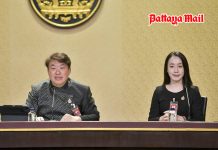The National Assembly’s Committee for External Relations held a meeting in Hanoi on August 19, offering an insight into the pros and cons Vietnam will face in the Association of Southeast Asian Nations (ASEAN) Community scheduled to be formed at the end of 2015.
Opening the event, Chairman of the committee Tran Van Hang, said 2015 marks a milestone for ASEAN as the bloc will officially form its community on December 31 with the three pillars of political-security, economy, and socio-culture.
With a foreign policy of independence, self-reliance, and active and responsible international integration, Vietnam has made efforts to contribute to all ASEAN areas of cooperation, he noted.
Deputy Foreign Minister Le Hoai Trung stressed that ASEAN membership has given Vietnam important and practical benefits, ultimately contributing to a peaceful and stable environment for national development and protection as well as the implementation of its foreign policy.
In particular, the membership has helped Vietnam establish substantive relations with regional countries and coordinate with them in solving complicated regional and global matters, as well as considerably supporting Vietnam in protecting its sovereignty and interests in the East Sea.
ASEAN cooperation has also created optimal conditions for Vietnam to raise its global standing, strengthen bilateral ties with regional nations as well as bloc partners, and gain experience to join larger cooperative mechanisms, Trung added.
Meanwhile, Deputy Minister of Industry and Trade Nguyen Cam Tu said once formed, the ASEAN Economic Community (AEC) will bring about enormous opportunities for member nations, including the expansion of the intra-regional market, which has a total population of over 600 million and an annual GDP of close to 3 trillion USD.
The elimination of tariff and non-tariff barriers will facilitate the flow of goods, services, capital and labour, prerequisites for enhancing ASEAN’s economic strength, he said.
The connectivity of regional markets will also help businesses cut import expenses, reduce product prices and seek new export destinations, he noted, adding that ASEAN is currently Vietnam’s third biggest importer, following the US and the European Union.
The country will have a chance to access its potential in tourism and aviation, while local enterprises will be able to foster investments in ASEAN countries and employ skilled workers from its neighbours, Tu said.
The official also underlined possible challenges to realising commitments in the master plan on building the AEC and improving public and business awareness of the community. Goods from the latest member states, including Vietnam, Cambodia, Laos and Myanmar, are likely to encounter strong competition from the other members after 2015.
With regard to concerns local workers will face difficulties in seeking jobs after the ASEAN Community is formed, Deputy Minister of Labour, War Invalids and Social Affairs Doan Mau Diep admitted unskilled workers will have little hope of being employed in other ASEAN countries, but countered that it will be more favourable for those with first-rate skills to find work, especially in cross-border trade and investment activities.
He emphasised the need to step up communications in the ASEAN Community, helping the public realise the necessity to promote quality human resources. Meanwhile, Vietnam must continue reforming its education system substantively and comprehensively to equip its people with practical skills.
Founded on August 8, 1967, ASEAN consists of Brunei, Cambodia, Indonesia, Laos, Malaysia, Myanmar, the Philippines, Singapore, Thailand and Vietnam.




